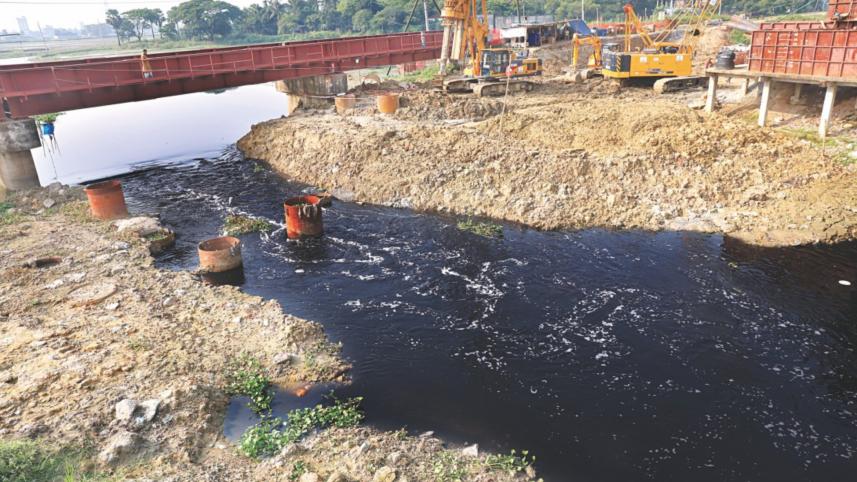Will the Turag meet Buriganga’s fate?

The Turag river is being contaminated with the untreated liquid industrial waste that is being dumped into the canals, streams and waterbodies around the garments washing plants and textile units located in Bangladesh Small and Cottage Industries Corporation (BSCIC) area. Local inhabitants tell of a time when the Turag canal water was so fresh that people could drink from it. Unfortunately, all that has changed as the untreated liquid waste from industries and the sewage from Tongi municipality area stream into the Turag River on a daily basis.
The problem is that the drives conducted by the Department of Environment (DoE) are not enough to discourage polluters from dumping untreated chemicals. The situation has grown worse over the last two decades as washing and dying plants have mushroomed in the area. What is interesting here is that, the DoE tells us that only 490 units out of 6,500 industrial units in Gazipur discharge liquid waste. While 455 of these units have installed Effluent Treatment Plants (ETPs), it is obvious that they are not utilised fully and hence the problem. The other problem, according to a study conducted by Buet is that many factories have expanded whilst their corresponding ETPs have not, and this leads to the extra volume of waste water being dumped into water channels without treatment.
Polluters getting away with contaminating the water supply has a long history in Bangladesh. For years, the Buriganga River was subject to waste water dumping by factories in the Hazaribagh tannery estate. Now, we are seeing a similar situation unfolding in the Turag River where the regulatory body is unable to enforce the Environment Conservation Act, 1995 (amended in 2010) that states textile dying factories are legally bound to install and run ETPs. Development is a must for the country, but it must be sustainable development that does not destroy the environment and livelihoods of communities. We need to take heed of the damage being done before the Turag is categorised as a dying river.



 For all latest news, follow The Daily Star's Google News channel.
For all latest news, follow The Daily Star's Google News channel.
Comments